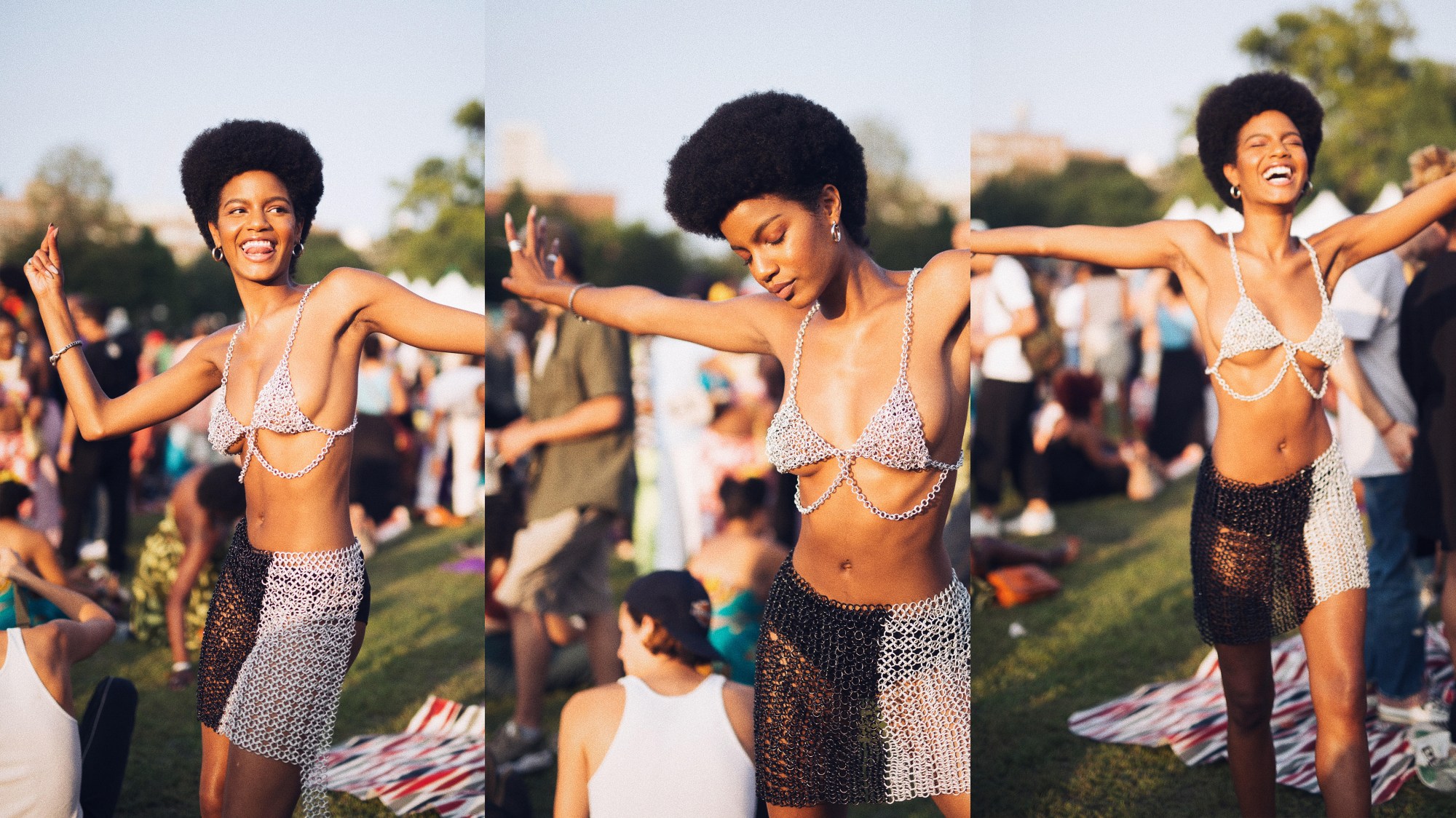This weekend I attended Afropunk music festival for the third time. Every year I leave feeling like more of myself than before. Growing up, I never saw multidimensional examples of blackness, something that went beyond stereotypes. Fitting in was always hard for me. I could never commit to being part of just one group of friends or living my life according to one set of behaviours. I often found myself on the outside looking in.
For many years I felt as though I had to choose between parts of my identity. In the company of my black friends, I felt like I had to hide my intelligence because I didn’t want to get called an Oreo. I felt as though my blackness was somehow compromised by my desire for knowledge and that the two could not exist harmoniously.
In the company of my white friends I felt like I had to hide my poverty and my blackness because they wouldn’t understand my struggle, but with them I was free to explore other interests of mine like science and travel. With them I also found myself exploring different genres of music; from country to rock, Sia to Panic at the Disco. I was able to discover pieces of myself that I would not have known otherwise.
No matter the genre, music has always been a unique way for me to connect to a deeper understanding of myself. Artists like Lauryn Hill, Common, Erykah Badu, Kanye West and Tupac helped me to become comfortable in who I was an in my my multidimensionality.
I was always the outsider. The misfit. The black sheep. The humble observer and sometimes reluctant participant. Whether it be fitting in among our peers or fitting into a society built on white privilege, the belief that we are supposed to “fit in”, or even that there is anything to fit into, is toxic and keeps us from knowing our true potential.
I liberated myself when I realised that my identity can be as eclectic as my taste in music. Some days I’m poetry. Some days I’m rap. Some days I’m R&B. Some days I’m rock. Some days I’m soul. Some days I’m silence. I love Sara Bareilles but my Milly Rock is also sturdy af. It was not until I realised that it is possible to both fit into and shatter every stereotype that I actually understood what it means to be free.
“Blackness does not look one way. Being carefree can be graduating from Princeton or it can be twerking to Future. Breaking stereotypes doesn’t negate our blackness, nor does satisfying stereotypes validate it.”
Because we were robbed of our culture, our sense of self as black people is often dictated to by what we see on television or read in magazines. We’ve not been allowed to control our own narrative, representation has generally been one-sided and has caused separation where unity should exist. Blackness does not look one way. Being carefree can be graduating from Princeton or it can be twerking to Future. Breaking stereotypes doesn’t negate our blackness, nor does satisfying stereotypes validate it. We don’t have to choose. We are entitled to wholeness. For too long we’ve lived our lives by other people’s definitions and it’s time to start living by our own. We are creative, articulate, intelligent, determined, and yes, black.
In a world full of prejudice, institutionalised shame and regurgitated narratives around our race’s supposed inferiority, Afropunk is a greenhouse of unapologetic authenticity; whether that looks like jeans and a white tee or a crown of sunflowers. We water each other’s gardens and replenish one another. We bask in the glory and fearlessness that, too often, we are deprived of.
Afropunk gives us a space to share, exchange, cultivate and celebrate one another while bonding over our favourite music. It is a spiritual experience that feels ritualistic at times. It is a delayed but much appreciated affirmation of our being. It is a safe haven for us to show up and be what we already are: magic.
Afropunk is what happens when black people realise the power in creating our own spaces to celebrate one another, rather than begging others to create space for us. This is what we need. It is a reminder that freedom is created, not given. We need to accept ourselves and grant one another the freedom to exist.
We cannot continue to measure our success by the doors that are opened for us by white people or how well we are able to assimilate. Our success as a race depends on the doors we open for ourselves and for one another and how well we uplift and support one another. Let’s continue to create spaces where we can come together and celebrate our authenticity.
